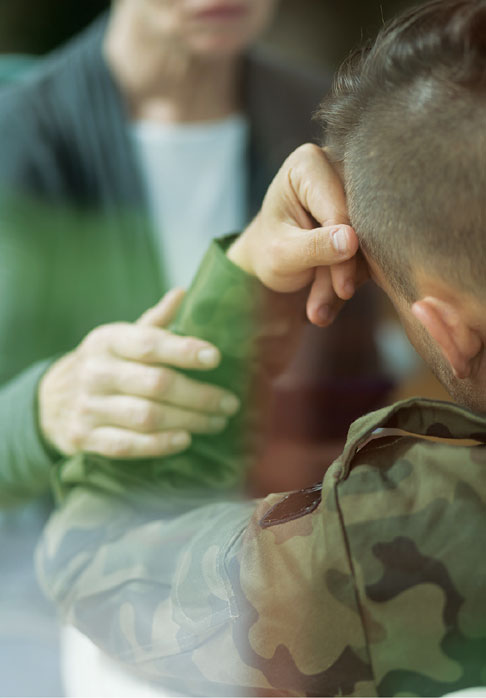 When veterans return from war, we offer them a handshake and a generic “thank you for your service.”
When veterans return from war, we offer them a handshake and a generic “thank you for your service.”
But there is much more we can do to help those who have lived through the hellish experience of combat to reintegrate into communities — the majority of which are comprised of members who have never even been close to the front lines.
In generations past, soldiers were left to work out for themselves how to fit back into society, and most kept their nightmares and worries to themselves.
More recently, we have come to understand post-traumatic stress disorder (PTSD). Extremely traumatic experiences like being ambushed or failing to save fellow troops can leave one overcome with physiological symptoms, such as hypervigilance, memory or concentration problems, insomnia, panic attacks and flashbacks. Recognition of the problem and therapies to address the symptoms are becoming more mainstream.
Like progress in cancer research, advances in the study of PTSD offer tremendous hope to those who suffer and to society as a whole. This understanding of the effects of war gave rise in 2009 to a new term —“moral injury.” We send bodies and souls into battle; however, fixing the body does not by itself bring a survivor back to wholeness.
Moral injury, as defined by the Veterans Health Administration, “is disruption in an individual’s confidence and expectations about his or her own moral behavior or others’ capacity to behave in a just and ethical manner.” Moral injury involves the brain’s sense of conscience and agency; in contrast, PTSD affects the brain’s reflex to fear and trauma.
Dr. Rita Nakashima Brock, a theologian who heads the Soul Repair Center at Brite Divinity School, explained that “moral injury can result in agony from inner judgment against oneself, anger, survivor guilt, isolation, despair and/or loss of will to live.”
Just as there are ways to heal the physical symptoms of PTSD, there are ways to redeem the moral landscape.
Key to this work are groups in which soldiers feel free to tell their stories without facing judgment and without having people mouth pat answers.
Families, support groups, churches and temples that offer deep listening in safe, long-term settings can help rebuild a veteran’s ability to feel valued in society. Listening groups trained to assist in this soul repair work are being formed across the United States.
Our communities of faith can open their doors to such groups, but we can do even more by up-dating our rituals of lamentation, forgiveness, penance and absolution in contemporary, and creative ways.
Opportunities for veterans to make amends and a difference in other people’s lives may replace their sense of shame with one of pride.
By pointing to examples of faithfulness and compassion, we can offer certainty that those who have seen the worst in war are not cut off from life’s goodness. In this way, our actions as people of faith can bring our troops all the way home.
WINDWARD UNITED CHURCH OF CHRIST
Rev. Jayne Ryan Kuroiwa
808-254-3802 | windwardpastor@hawaii.rr.com
www.windwarducc.org


Leave a Reply